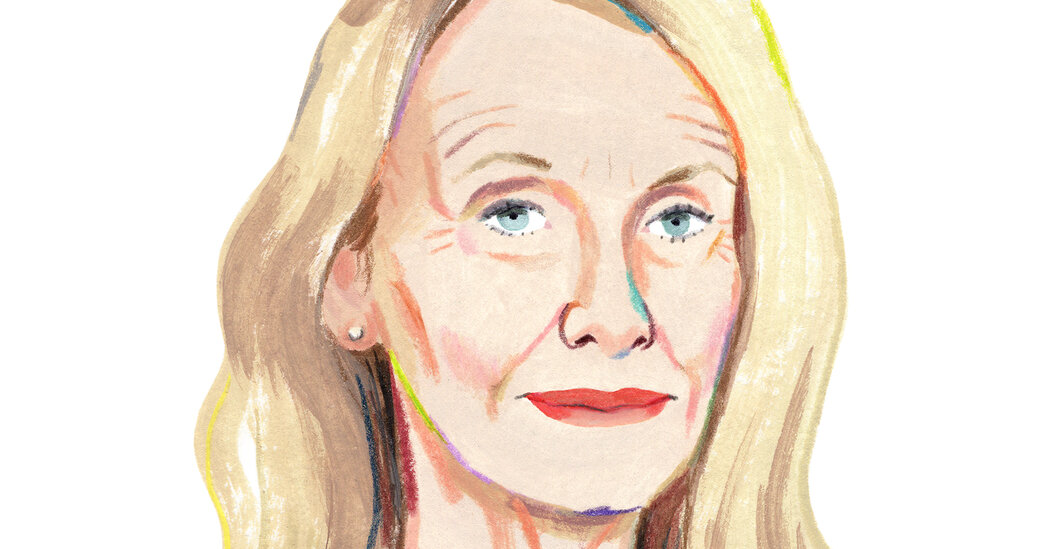
What books are on your night stand?
Right now, I’m rereading a work that I read 60 years ago, “Tragic Sense of Life,” by Miguel de Unamuno. I’m also reading a narrative that has just been published (I receive a lot of them, and read only a few), called “Tombé du Ciel,” about a son’s quest to know his father, a slate roofer who died at age 30 when he fell off a building where he was working.
What’s the last great book you read?
I can say without hesitation that it’s “Triste Tigre,” by Neige Sinno, a French author who lives in Mexico. Her book, which took her 20 years to write, recounts the seven years of rape perpetrated on her by her stepfather. Published in France this summer, it is the most powerful, profound book I’ve ever read about the devastation of one person’s childhood by an adult.
Are there any classic novels that you only recently read for the first time?
No, not recently.
Describe your ideal reading experience (when, where, what, how).
The first condition is silence. The when and where do not matter. On the other hand, I need to be seated comfortably with the book on my knees, not on a table. I also need a pencil to underline passages and jot down thoughts. And to have plenty of time, though there can be pleasure in reading a book while an urgent task awaits.
What’s your favorite book no one else has heard of?
It’s probably presumptuous to think that no one today has heard of “Little Boy Lost,” by Marghanita Laski.
Which writers — novelists, playwrights, critics, journalists, poets — working today do you admire most?
Marie NDiaye, Julie Otsuka, Florence Aubenas, Peter Handke.
What other writers of autofiction do you particularly recommend?
Camille Laurens, Maria Pourchet, Édouard Louis.
And what contemporary French writers deserve a wider audience elsewhere?
Dominique Barbéris, Pascal Quignard.
What writers are especially good on memory and its role in our lives?
Proust, obviously! And Patrick Modiano.
Do you count any books as guilty pleasures?
No, I admit without shame to all my reading pleasures, past and present.
Has a book ever brought you closer to another person, or come between you?
When someone I don’t like very much likes the same book as me, I tend to be less harsh toward that person. And I’ve never gone so far as to fall out with someone over a book. But I’m very disappointed when someone doesn’t like a book that I have liked and, conversely, when someone praises a book that I hated. I feel as if we don’t see the world in the same way, that it’s a profound disagreement, and I don’t ever forget it.
What’s the most interesting thing you learned from a book recently?
I don’t feel as if I’m “learning” something specific from a book, but that what I’m living while reading is happening both inside and outside me: an experience.
What moves you most in a work of literature?
To be surprised, changed by a text.
How do you organize your book collection?
Methodically: French literature, foreign literature, essays, poetry collections, art books, graphic works. Alphabetical order in each section. It’s simply easier that way to find a book I’m looking for.
What book might people be surprised to find on your shelves?
I have no idea; it’s their problem, not mine.
What’s the best book you’ve ever received as a gift?
“In Search of Lost Time,” which my husband gave me for my 25th birthday.
What kind of reader were you as a child? Which childhood books and authors stick with you most?
I was an insatiable reader: books, women’s magazines, the local daily newspaper. “Jane Eyre,” by Charlotte Brontë; “Oliver Twist,” by Charles Dickens; “Gone With the Wind,” by Margaret Mitchell — they all left me with lasting memories. I thought the authors were talking about beings who had existed.
You’re organizing a literary dinner party. Which three writers, dead or alive, do you invite?
Flaubert, Virginia Woolf, Camus
What do you plan to read next?
Novels by a Swedish author, Sara Stridsberg, whose book “The Antarctica of Love” I infinitely loved.
—Translated from the French by Alison L. Strayer
